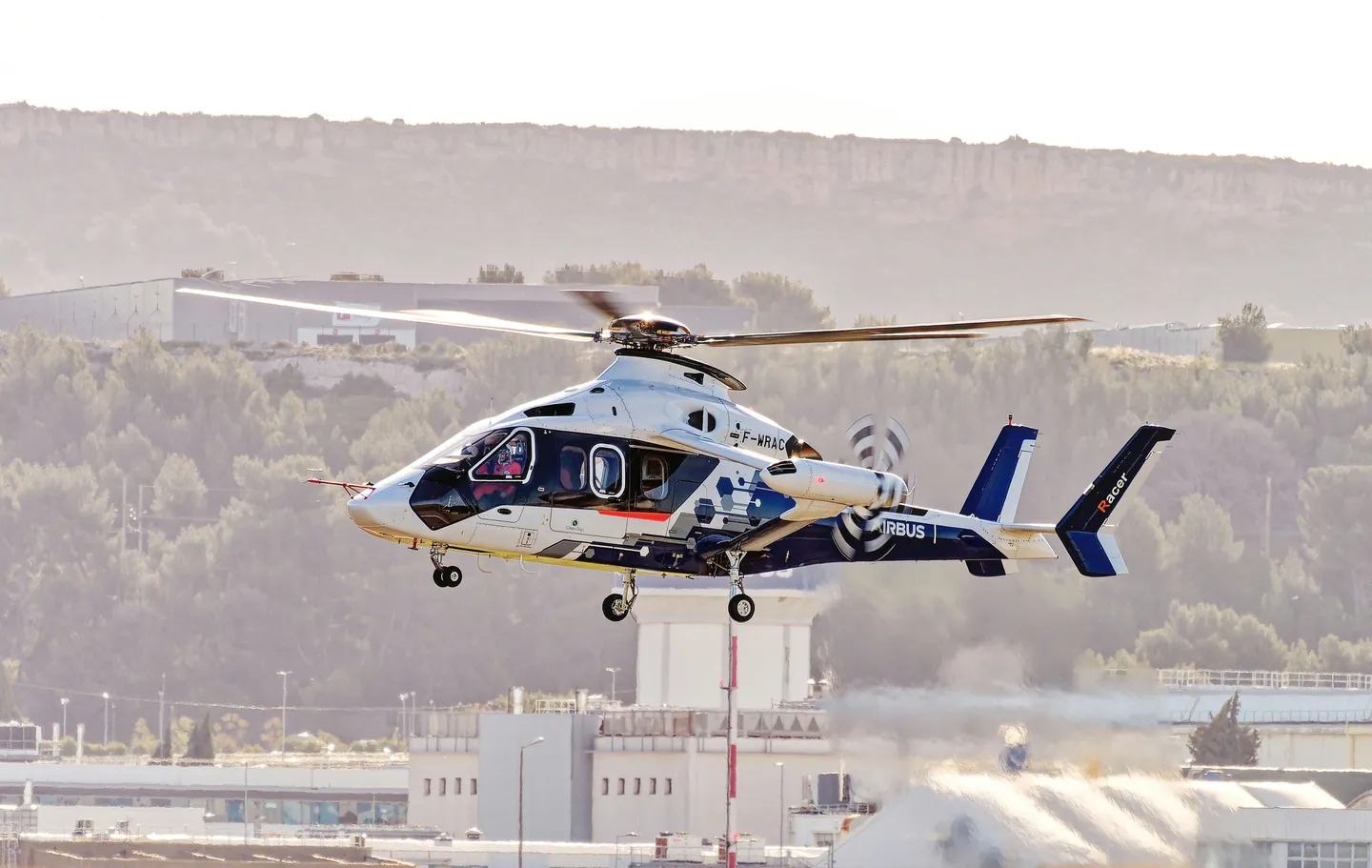Airbus’s Racer high-speed helicopter demonstrator, developed in the frame of the European Research Clean Sky 2 project, has reached its fast cruise speed target of 407 km/h (220 kts). On 21 June, less than two months after its first flight, the Racer demonstrator exceeded its level speed objective of 407 km/h (220 kts) by reaching 420 km/h (227 kts) in its initial configuration. In just seven flights and about nine hours of flight testing, almost all of the flight envelope has been opened. The flight test crew consisted of Hervé Jammayrac, Chief Flight Test Pilot, Dominique Fournier, Flight Test Engineer, and Christophe Skorlic, Test Flight Engineer. The next phase of flight testing will focus on single engine operations and finalise the flight envelope.
“This achievement in such a short space of time is really a testimony to the hard work of our 40 partners in 13 European countries to bring all of this innovation to flight. On top of its performance, the aircraft’s aerodynamic behavior and stability are promising. We are all looking forward to the next phase of flight testing, especially the eco-mode which will enable us to shut down one engine in forward flight, thus reducing fuel consumption, and lowering the CO2 emissions,” said Bruno Even, CEO of Airbus Helicopters.

Optimised for a cruise speed of more than 400 km/h, the Racer demonstrator aims to achieve the best trade-off between speed, cost-efficiency, and mission performance. The Racer also targets a fuel consumption reduction of around 20%, compared to current generation helicopters in the same maximum take-off weight category, thanks to aerodynamic optimisation and an innovative eco-mode propulsion system. Developed with Safran Helicopter Engines, the hybrid-electrical eco-mode system allows one of the two Aneto-1X engines to be paused while in cruise flight, thus contributing to cutting CO2 emissions. The Racer also aims to demonstrate how its particular architecture can contribute to lowering its operational acoustic footprint.
The Racer builds upon the aerodynamic configuration validated by the Airbus Helicopters X3 technology demonstrator which, back in 2013, broke the speed record and pushed the limits for a helicopter by reaching 472 km/h. While the aim of the X3 was to validate the compound architecture, combining fixed wings for energy efficient lift, lateral rotors for energy-efficient propulsion and a main rotor that provides energy-efficient VTOL flight capacity, the Racer aims to take the compound formula closer to an operational configuration and to offer increased capabilities for certain missions for which high speed can be a real advantage. This important milestone launches the flight campaign which will take two years and will aim to progressively open the aircraft’s flight envelope and demonstrate its high speed capabilities.












